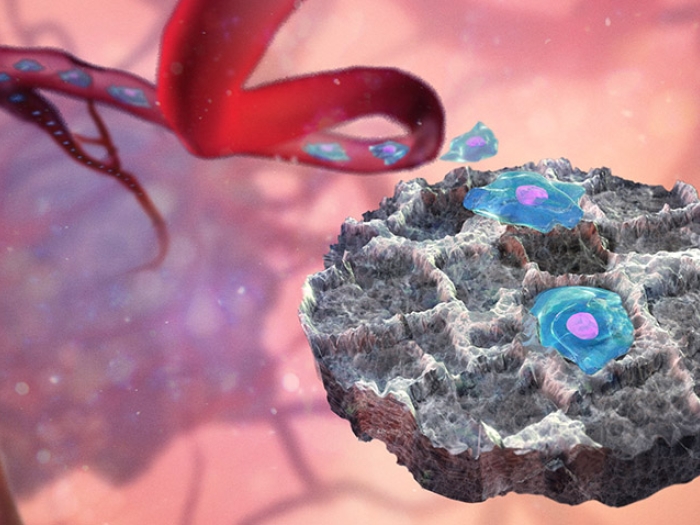Director of Communications, University of Michigan Rogel Cancer
Fawcett leads a team of communicators who produce targeted, innovative communication for the Rogel Cancer Center’s research and clinical enterprises. Prior to Michigan Medicine, Fawcett was a reporter at the Detroit News and editor for a web-based community for people with disabilities.


Health Lab
One in six early stage breast cancer patients choose double mastectomy. Learn about unnecessary bilateral mastectomy and why patients choose to have it.

Health Lab
U-M study finds biomarkers that may signal throat cancer recurrence. Learn how the ratio of E7 antibodies may help predict oropharyngeal cancer recurrence.

Health Lab
A study on breast reconstruction after radiation therapy compares implant reconstruction to autologous reconstruction. Lean more about this breast cancer study.

Health Lab
New research finds 80 percent of pediatric hindbrain ependymomas had reduced levels of H3K27me3. See how this discovery could help treat childhood brain tumors.

Medicine at Michigan
A $17.5 million gift establishes the Forbes Institute for Cancer Discovery

Health Lab
49 out of 50 new cancer drugs fail cancer clinical trials. See why a U-M oncologist believes the oncology clinical trial failure rate is so high.

Health Lab
Researchers have shown the EGFL6 protein helps ovarian cancer spread. Learn more about ovarian cancer treatment and prevention using EGFL6-blocking antibodies.

Health Lab
Learn how oncologists are personalizing breast cancer treatment, including whether or not chemotherapy is used, based on the 21 gene recurrence score assay test.

Health Lab
Antioxidant supplements could make cancer worse in cancer patients. Learn how antioxidants may fuel cancer and find more information on antioxidants and cancer.

Health Lab
U-M is participating in the Blood Profiling Atlas, part of the Cancer Moonshot Initiative. Learn how U-M is using liquid biopsies and contributing to the atlas.

Health Lab
Breast cancer patients are consulting with their primary care physicians on cancer treatment. See how oncologists and PCPs can provide better collaborative care.

Health Lab
National initiative seeks to improve pancreatic cancer clinical trials and pancreatic cancer treatment. Learn more about clinical trials for pancreatic cancer.

Health Lab
Understanding who has the highest risk of rare cancers, including squamous cell esophageal cancer, suggests a potential for targeted screening recommendations.

Health Lab
Learn about a small implanted device capable of detecting and treating metastatic breast cancer earlier and how this technology could improve survival rates.

Health Lab
Despite having stage 4 prostate cancer, 74 year old Woods Brown remains active by fishing and planting. Learn more about Woods and living with prostate cancer.